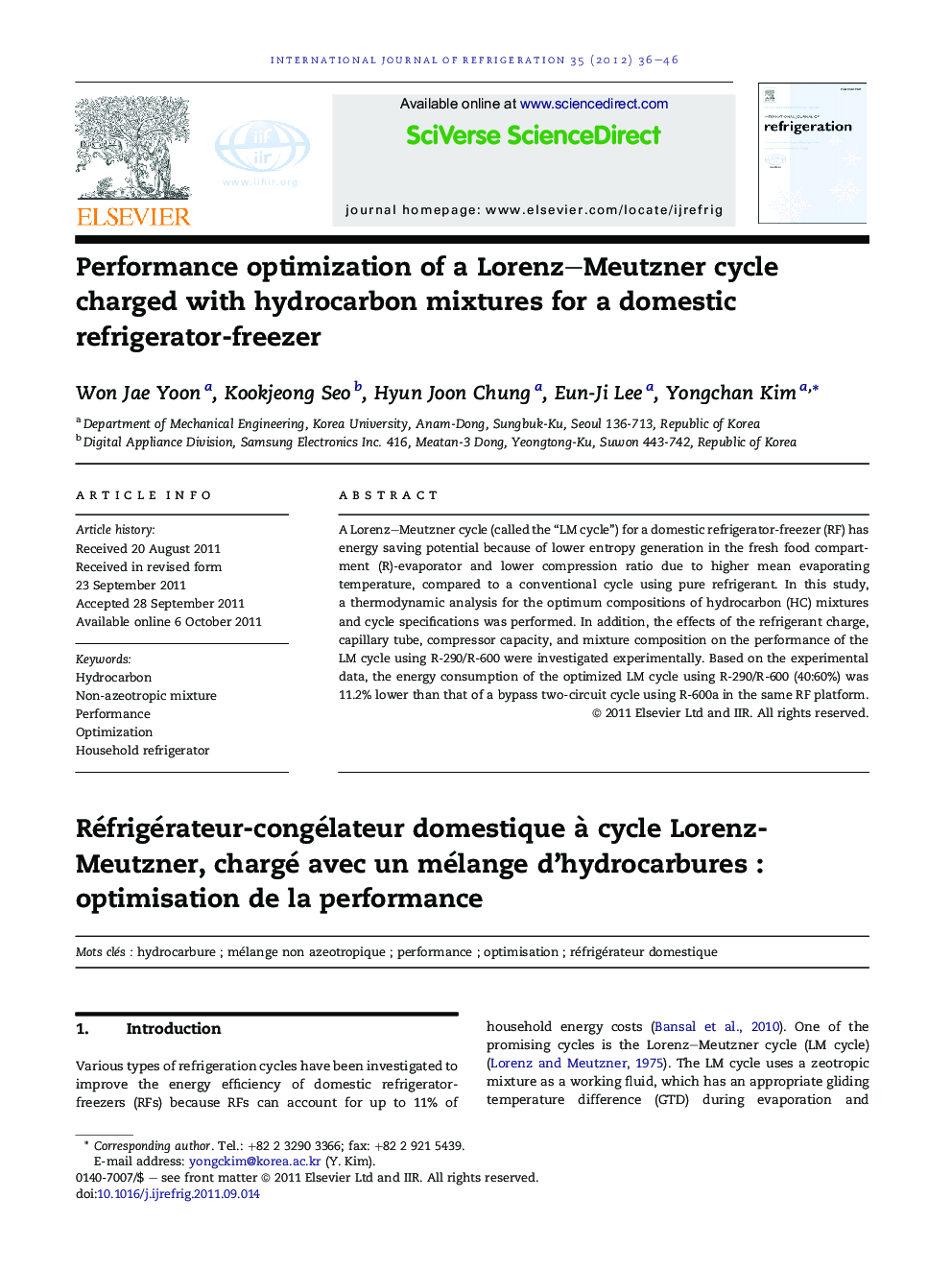| Article ID | Journal | Published Year | Pages | File Type |
|---|---|---|---|---|
| 790401 | International Journal of Refrigeration | 2012 | 11 Pages |
A Lorenz–Meutzner cycle (called the “LM cycle”) for a domestic refrigerator-freezer (RF) has energy saving potential because of lower entropy generation in the fresh food compartment (R)-evaporator and lower compression ratio due to higher mean evaporating temperature, compared to a conventional cycle using pure refrigerant. In this study, a thermodynamic analysis for the optimum compositions of hydrocarbon (HC) mixtures and cycle specifications was performed. In addition, the effects of the refrigerant charge, capillary tube, compressor capacity, and mixture composition on the performance of the LM cycle using R-290/R-600 were investigated experimentally. Based on the experimental data, the energy consumption of the optimized LM cycle using R-290/R-600 (40:60%) was 11.2% lower than that of a bypass two-circuit cycle using R-600a in the same RF platform.
► A thermodynamic analysis for the optimum compositions of hydrocarbon (HC) mixtures and cycle specifications was performed. In addition, the performance of the LM cycle was measured and analyzed by varying the refrigerant charge, capillary tube length, compressor capacity, and mixture composition, and then compared with that of the bypass two-circuit cycle. The energy consumption of the optimized LM cycle using R-290/R-600 (40:60%) was 11.2% lower than that of a bypass two-circuit cycle using R-600a in the same RF platform.
